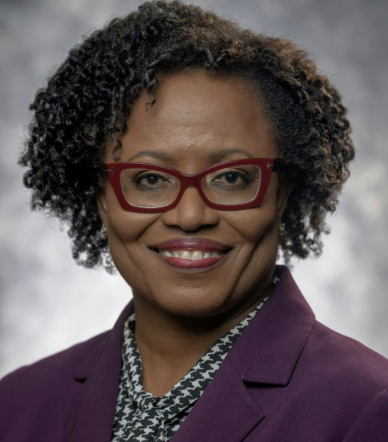
FROM THE PRESIDENT AND CEO
March 2024
AFN’s biennial conference is focused on advancing equitable wealth building and economic equity. With the largest number of funders participating in our history, we are inspired by your engagement, interest, support, and commitment to act in your communities!
As we celebrate our 20th anniversary, we remember that AFN emerged as a response to the glaring inadequacies of past reforms fixated solely on income. Our journey began with a critical examination of economic injustices, unearthing racism and sexism as their underlying root causes.
These injustices, systematically inflicted upon Black, Indigenous, Latino, Asian and Pacific Islander communities, underscored the pressing need for transformative, systemic change across all sectors of our economy and society. Economic inequities continue to be reinforced in race neutral and gender inclusive language. Thus, intentional justice work continues to evolve, requiring sustained effort with long term goals.
While we can take pride in the increasing focus of philanthropy, local government, and many community voices to remove systemic economic inequities at their roots, powerful forces are diligently working to obstruct hard-fought progress. These forces aim to return to, and sustain, a discriminatory caste system that predominantly favors wealthy white individuals, perpetuating disadvantages for people of color, women, the elderly, and youth.
Now more than ever, it is imperative for funders to stand resolute in their commitments and intentionally center equity in their grantmaking endeavors, echoing the central theme of this year’s conference. The challenges to equity for women begin but hardly end with a denial of reproductive freedom. Those discriminatory efforts gained momentum with the historically disingenuous Dobbs decision and continue through the outlawing of medical procedures including IVF and challenging of long-held FDA procedures approving medication. And more harm, especially to women, is being planned. Well-resourced and organized efforts are being designed to impose outdated inequalities on women, particularly those who are unmarried, as well as persons who are LGBTQ, poor and working women, and persons of color. If that seems farfetched, consider that Title IX, guaranteeing women’s equal access to college admissions and scholarships, was only established in 1972, and not until the Equal Credit Opportunity Act of 1974 was passed was the routine denial of credit cards, mortgages, and loans to women prohibited. We cannot and must not return to an unjust past.
Simultaneously, costly, often frivolous, lawsuits are being filed alleging reverse discrimination against whites that challenge race-conscious efforts to expand the economy in an inclusive equitable way. And non-white immigrants are again being broadly vilified by elected officials and their followers despite their essential and innovative contributions to our economy and communities. This is despite overwhelming evidence that equity in the economy would work to grow the economy for everyone to do better.
Facing these reactionary challenges requires resourcefulness, resolve, and committed resources by philanthropy using all of its tools. As Abraham Lincoln noted, “Be sure you put your feet in the right place, then stand firm.” That is the call to action for AFN, its members and all those who believe in equitable justice. Or, as Representative Shirley Chisholm noted: “You don’t make progress by standing on the sidelines whimpering and complaining. You make progress by implementing ideas.” There is much we can all do to achieve equitable economic justice; I remain optimistic that the necessary resolve and resources are within reach. Ideas take shape and evolve into intentional, actionable strategies within the collaborative environment of networks and convenings, such as those orchestrated by AFN.
For two decades, AFN has set its compass to equitable asset building, and we must continue this journey together, maintaining an unwavering focus on this goal. Our growing, shared prosperity depends on it.


